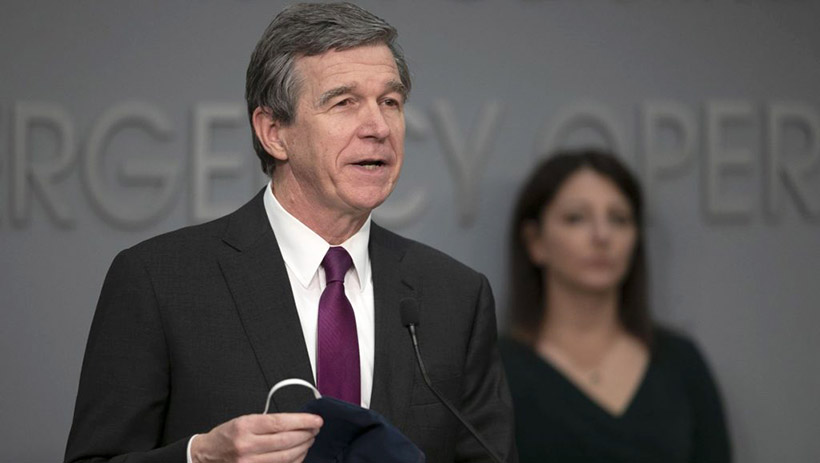Publisher's note: This post appears here courtesy of the Carolina Journal, and written by Lindsay Marchello.

Gov. Roy Cooper announced during a Tuesday, July 14, news conference that schools can reopen in the fall with a mix of in-person instruction and remote learning.
Cooper failed to give school districts the opportunity to opt in to a full, in-person classroom setting, nor did he allow districts the chance to tailor regional plans.
Students have already lost most of the spring semester. In March, the governor closed schools for in-person instruction for the remainder of the 2019-20 school year to slow the spread of COVID-19. School officials cobbled together last-minute remote learning plans with varying degrees of success.
But schools had more time to prepare for the start of the 2020-21 school year. The state asked all school districts to create three reopening plans, ranging from most to least restrictive. Plan A has the fewest restrictions, requiring minimal social distancing of students and staff. Plan B requires more stringent social distancing and fewer people in the school building. Under Plan C, schools would use only remote learning.
Cooper picked Plan B — the least objectionable according to at least
one poll — but said schools can choose Plan C. If COVID-19 metrics get worse the state could once again end in-person classes.
The governor also said the state would remain under his "Safer at Home Phase Two" emergency order for an extra three weeks — until Aug. 7. Bars, gyms and other indoor fitness centers, and bowling alleys would stay closed. (On Tuesday, the state Supreme Court blocked a Superior Court
order from
last week allowing bowling alleys to reopen.)
Under Plan B, all teachers and students must wear face masks. Schools must conduct daily symptom screenings, temperature checks, and develop a plan to isolate the sick.
The state will send face masks and personal protective equipment to schools, Cooper said.
Schools must limit attendance to ensure proper social distancing. To limit capacity, schools can require groups of students to alternate when they attend school or stay home for virtual learning, Cooper said.
Republican leaders aren't happy with the announcement.
"Gov. Cooper's plan gets students halfway to where they need to be. But much like jumping over a creek, halfway doesn't cut it," Senate leader Phil Berger, R-Rockingham, said in a news release.
The governor's plan makes inequities in the public school system worse, Berger said, as students whose parents aren't able to supplement remote learning will fall further behind.
"Today's announcement that classrooms will remain closed to students either periodically or completely exacerbates the administration's economic and public health failures while adding even more uncertainty for struggling families in North Carolina," Speaker of the House Tim Moore, R-Cleveland, said in a
news release.
More resources are needed to safely re-open, Tamika Walker Kelly, president of the N.C. Association of Educators, said in a news release.
"This General Assembly must step up and do their jobs to provide the necessary funding for public schools so that we as educators can do our jobs to safely educate all of North Carolina's students," Kelly said.
Children should return to school, Robert Redfield, the director for the Centers for Disease Control and Prevention, told reporters during a July 13
news conference in Charlotte.
Schools provide millions of students with meals and mental health services, Redfield said, and serve an important role in reporting sexual abuse and child abuse.
"My analysis of this on the public health scale is way in favor of reopening schools face to face and these kids can get the education they deserve," Redfield said.
While there are strong benefits for children to return to school, the state should proceed with caution, said Charlene Wong, assistant professor of pediatrics at Duke University, during a July 14
webinar on reopening schools.
Ibukun Christine Akinboyo, another Duke assistant professor of pediatrics, and Lisa Gennetian, associate professor of early learning policy studies at Duke, joined Wong in discussing the challenges to getting children back to school safely.
Families, schools, and even employers should prepare for COVID-19 disruptions, Wong said.
"Preparation now will help ensure that families will be able to follow these quarantine guidelines so that we can slow the spread of the virus and so schools can remain open for learning," Wong said.
























